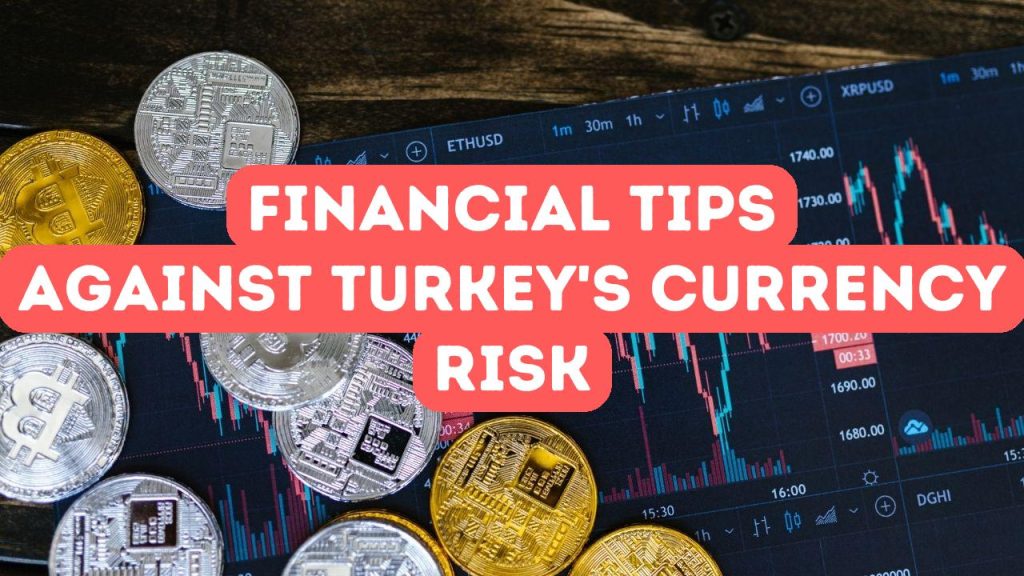Navigating Market Volatility: Strategies for Turks
One effective method for Turkish residents to hedge against currency risk is through the diversification of investments. By allocating resources across different asset classes and currencies, individuals can mitigate the impact of local currency depreciation on their overall portfolio. This strategy may involve investing in foreign stocks, bonds, or real estate, which not only provides potential growth in diverse economic conditions but also spreads the risk. Moreover, holding a portion of wealth in stable foreign currencies such as the US dollar or Euro can act as a buffer when the Turkish Lira faces a downturn. Diversification, therefore, serves as a foundational strategy in the toolset of Turks who aim to maintain financial stability amid the market’s inherent volatility.
Another protective strategy is the use of financial derivatives like futures and options contracts, which allow Turkish residents to lock in exchange rates for future transactions. These instruments can be particularly useful for individuals with upcoming expenses in foreign currencies, such as tuition fees for education abroad or payments for imported goods. By fixing the exchange rate in advance, they can avoid the risk of unfavorable shifts in currency valuations impacting their financial plans. Engaging in forward contracts with banks or brokers, for example, offers a predetermined rate for converting lira into another currency on a set future date, providing predictability amidst uncertainty. Nonetheless, such hedging measures require a solid understanding of the derivatives market and professional advice to navigate effectively.
Despite these strategies, Turkish residents must also exercise vigilance in tracking the economic indicators that signal potential currency shifts, such as inflation rates, interest rate decisions by the Central Bank of the Republic of Turkey, and geopolitical developments. Staying informed enables individuals to adjust their hedging strategies proactively. Investment in precious metals like gold, often deemed a haven in times of financial instability, can be another approach to preserve value when the lira is under pressure. Lastly, engaging with knowledgeable financial advisors who can provide tailored guidance based on an individual’s unique financial circumstances is invaluable. By combining these methods with a keen awareness of the economic landscape, Turkey’s residents can enhance their resilience against currency risk and secure their financial future in an unpredictable market.
Effective Foreign Exchange Management in Turkey
In Turkey, effective foreign exchange management begins with a vigilant monitoring of the global currency markets and an acute awareness of geopolitical events that may trigger fluctuations. Residents should maintain a diversified portfolio of foreign currencies, spreading their risk across several stronger denominations such as the US dollar, Euro, or Swiss Franc rather than relying solely on the Turkish Lira. This act of diversification serves as a buffer against adverse currency movements, potentially preserving the purchasing power of one’s savings. Additionally, individuals can leverage regular analysis from reputable financial institutions to inform their currency holding decisions, timing their conversions to maximize value or minimize losses based on current and projected exchange rates. Engaging with these proactive strategies ensures that Turkey’s residents are not left at the mercy of unpredictable currency shifts but are instead positioned to respond with informed, strategic financial choices.
Beyond mere diversification, residents of Turkey may employ more sophisticated instruments like currency forwards and options to hedge against foreign exchange risk. Currency forwards enable individuals to lock in a specific exchange rate for a set period, providing clarity and certainty for future expenses, investments, or income in foreign currencies. Options, on the other hand, offer the right, but not the obligation, to exchange currency at a predetermined rate, allowing for flexibility and protection against unfavorable market movements. These hedging strategies, although accessible primarily through financial institutions and subject to transaction costs, can profoundly mitigate the risks associated with currency volatility. Utilizing such tools requires a nuanced comprehension of financial markets, and residents are advised to consult with currency risk management professionals before initiating any contracts that could have substantial long-term financial implications.
In addition to leveraging financial instruments, Turkey’s residents should consider geographical diversification by placing a portion of their investments in more stable foreign economies, where currency risk is lower. Real estate, international business ventures, and global stock indices are avenues through which individuals can gain exposure to multiple currencies and economic environments, thereby diluting the impact of any singular currency’s downturn. Meanwhile, cultivating relationships with financial experts who specialize in international markets can provide invaluable guidance, ensuring that those investing abroad make informed decisions aligned with their risk tolerance and financial goals. As the Turkish Lira experiences its ebbs and flows, a well-rounded approach to currency risk—which interweaves diversification, strategic use of financial products, and international investment—can afford Turkey’s residents not only peace of mind but a more resilient financial future.
Mitigating Currency Fluctuations: A Guide for Turkish Investors
For Turkish investors looking to mitigate currency fluctuations, one of the first steps is to diversify their investment portfolios across a range of currencies and asset classes. By spreading investments, they can insulate themselves from the volatility that often impacts the Turkish Lira, reducing the overall risk to their capital. Diversification strategies might include investing in foreign stocks, bonds, or mutual funds, which not only potentially yield returns in a more stable currency but also broaden the investors’ exposure to global growth opportunities. Adjusting the portfolio to include assets priced in currencies like the US dollar, the Euro, or gold can serve as a protective measure against the depreciation of the lira, ensuring that at least a portion of their portfolio maintains its purchasing power on the international stage.
Beyond mere diversification, Turkish investors are increasingly turning to derivative instruments as sophisticated tools for currency risk management. The use of forward contracts, options, and swaps allows investors to lock in exchange rates for future transactions, which can be particularly advantageous for those with anticipated foreign currency exposure, such as international business dealings or educational expenditures abroad. Forward contracts can be customized to match the exact requirements of the investor, providing a tailored hedge against currency movements. Meanwhile, options give the right, but not the obligation, to exchange currency at a predetermined rate, offering both protection and flexibility. Swaps can be utilized to exchange cash flows in different currencies, potentially reducing borrowing costs and leveraging interest rate differentials. Each of these instruments requires a nuanced understanding, as they carry varying levels of complexity and risk, emphasising the need for diligent research or consultation with financial advisors to ensure alignment with the investor’s objectives and risk tolerance.
Furthermore, the strategic use of multi-currency bank accounts and specialized currency risk management firms can offer Turkish investors additional layers of security against exchange rate fluctuations. By maintaining bank accounts in various major currencies, investors can readily convert funds when rates are favorable, reducing the cost of currency conversion and gaining a potential arbitrage advantage. Working alongside firms that specialize in currency risk can provide access to real-time market data, expert analysis, and proactive strategies to anticipate and react to market movements. These professional services can be particularly valuable for those lacking the time or expertise to monitor the ever-changing currency markets themselves, ensuring that protective measures are both current and poised to effectively counteract adverse shifts in currency values.






